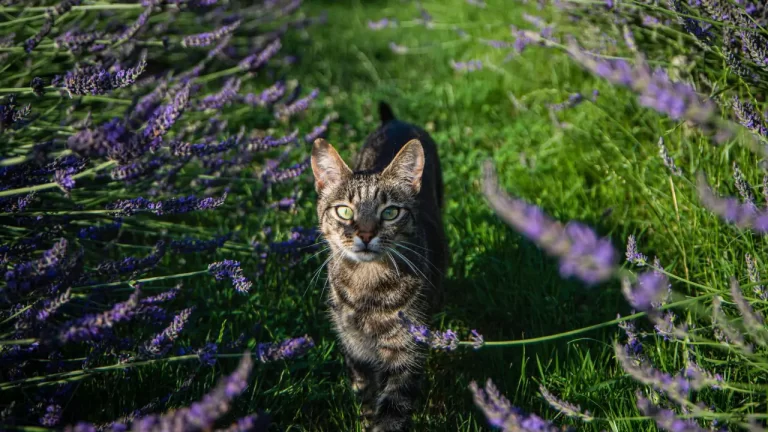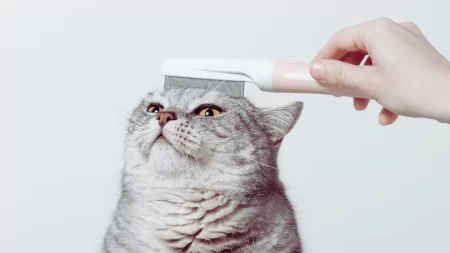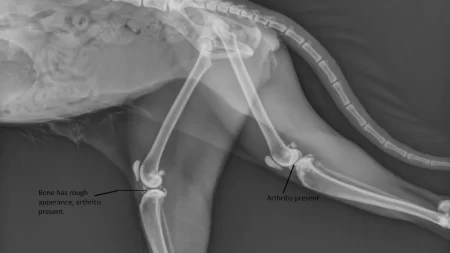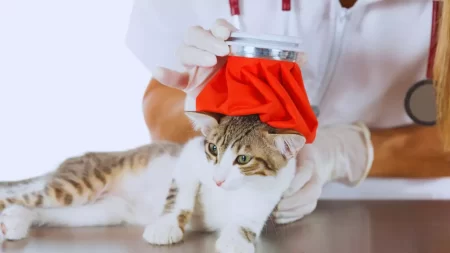No, lavender is not safe for cats and should be avoided. Lavender contains essential oils that can be toxic to cats when ingested or inhaled.
While lavender has many uses for humans, it poses health risks for felines. Cat owners should use alternative products that do not contain lavender.
The Use of Lavender in Everyday Products
Lavender is a popular scent used in many household items and self-care products. The purple flowering herb has a pleasant floral and calming aroma.
Aromatherapy Benefits
Lavender essential oil is commonly used in aromatherapy for its relaxation and stress-relief properties. The scent is believed to reduce anxiety, improve sleep, and soothe headaches. Lavender can also help repel insects when used topically.
Common Uses in Household Products and Cosmetics
Dried lavender flowers and lavender oil are used to scent various common household products. These include soaps, perfumes, cleaning products, sachets, potpourri, laundry detergent, and more. Lavender is also a popular scent for candles, air fresheners, and DIY crafts.
The Potential Dangers of Lavender for Cats
While lavender’s aromatic properties benefit humans, the herb may be dangerous for felines. This is especially true in its concentrated, essential oil form.
Essential Oils and Their Effects on Cats
Cats are especially sensitive to essential oils like lavender. The oils can be toxic to cats when inhaled or ingested. Since cats groom themselves frequently, they are at risk of ingesting oils applied topically to their skin or fur. Diffusing lavender oil in a cat’s environment is also hazardous.
Lavender’s Effects on a Cat’s Respiratory and Nervous Systems
The chemical components in lavender oil may cause respiratory issues in cats. Lavender is known to cause irritation, breathing difficulties, and pulmonary edema when inhaled by felines. Topical application can also lead to chemical burns on a cat’s skin.
Lavender oil can also negatively impact a cat’s central nervous system. Exposure can cause lethargy, tremors, and lack of coordination in cats. Ingestion may result in vomiting, diarrhea, and hypersalivation.
Ingestion Risks
One of the greatest risks is a cat ingesting lavender essential oil. As little as one drop can cause side effects in cats. The oil’s concentration makes ingestion especially hazardous. Many household products like laundry detergent and cleaning products also contain trace amounts of lavender that could be toxic if ingested.
Alternative Options for Cat-Friendly Products
Cat owners looking for lavender-free alternatives are in luck. There are many ways to enjoy lavender’s fragrance safely.
Choosing Cat-Safe Alternative Products
When shopping for household items and cosmetics, check that lavender is not listed in the ingredients. Opt for unscented or cat-friendly scented products. Using dried lavender bundles instead of oils is safer as well. Place dried flowers out of the cats’ reach. There are also many lavender-free essential oils considered cat-safe like geranium and lemon balm.
DIY Options for Natural and Safe Alternatives
For household cleaning products, baking soda, vinegar, lemon juice, and water make excellent natural alternatives. Use pet-safe unscented soaps and perfumes. Avoid chemical-laden cat litter and opt for natural plant-fiber litters instead.
Make your own cat toys by stuffing socks with catnip rather than lavender. Grow cat-safe plants like ryegrass, oat grass, and catmint for your cat to nibble. Place out-of-reach dried bouquets of roses, basil, and marigolds which are non-toxic for cats.
Overall, aroma alternatives like geranium, lemongrass, citrus scents, and catnip are ideal substitutes. With so many lavender-free options, cats and cat owners can avoid the risks of lavender exposure. Removing lavender from your home protects the health and safety of felines.







